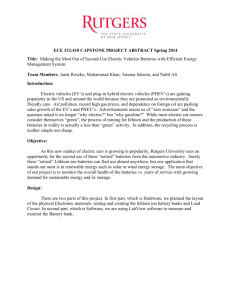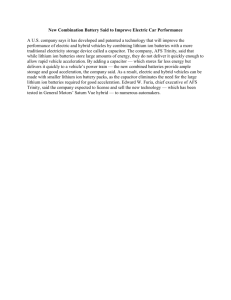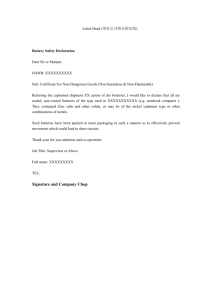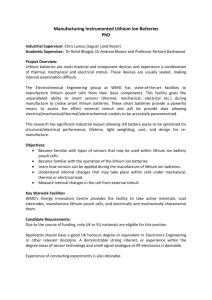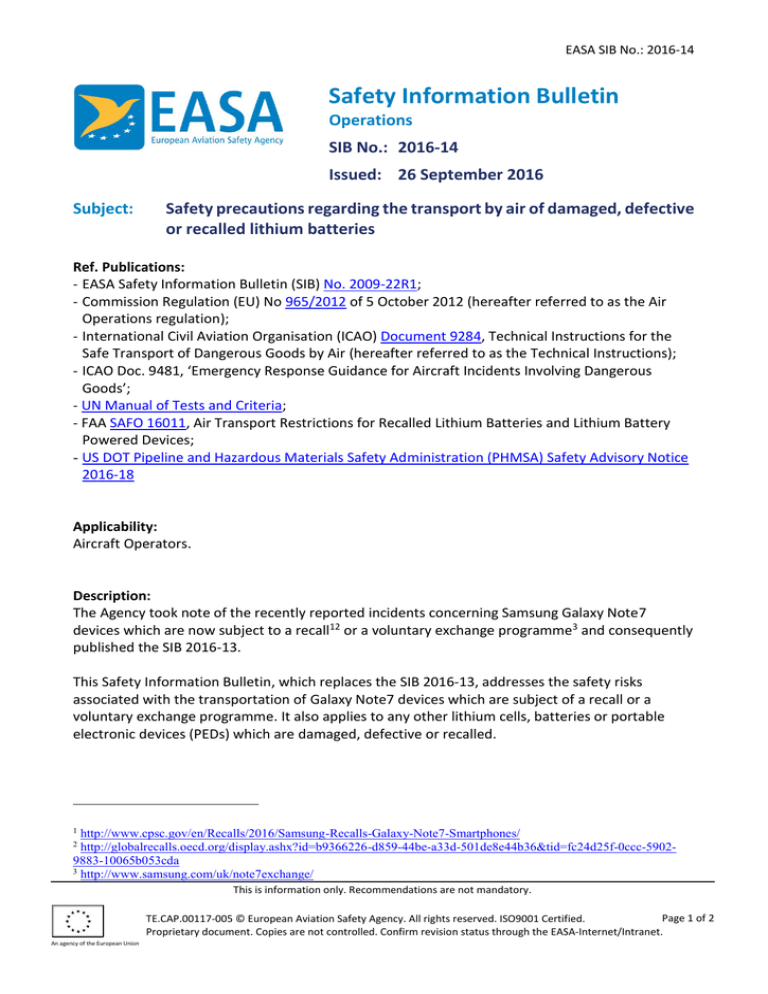
EASA SIB No.: 2016-14
Safety Information Bulletin
Operations
SIB No.: 2016-14
Issued: 26 September 2016
Subject:
Safety precautions regarding the transport by air of damaged, defective
or recalled lithium batteries
Ref. Publications:
- EASA Safety Information Bulletin (SIB) No. 2009-22R1;
- Commission Regulation (EU) No 965/2012 of 5 October 2012 (hereafter referred to as the Air
Operations regulation);
- International Civil Aviation Organisation (ICAO) Document 9284, Technical Instructions for the
Safe Transport of Dangerous Goods by Air (hereafter referred to as the Technical Instructions);
- ICAO Doc. 9481, ‘Emergency Response Guidance for Aircraft Incidents Involving Dangerous
Goods’;
- UN Manual of Tests and Criteria;
- FAA SAFO 16011, Air Transport Restrictions for Recalled Lithium Batteries and Lithium Battery
Powered Devices;
- US DOT Pipeline and Hazardous Materials Safety Administration (PHMSA) Safety Advisory Notice
2016-18
Applicability:
Aircraft Operators.
Description:
The Agency took note of the recently reported incidents concerning Samsung Galaxy Note7
devices which are now subject to a recall12 or a voluntary exchange programme3 and consequently
published the SIB 2016-13.
This Safety Information Bulletin, which replaces the SIB 2016-13, addresses the safety risks
associated with the transportation of Galaxy Note7 devices which are subject of a recall or a
voluntary exchange programme. It also applies to any other lithium cells, batteries or portable
electronic devices (PEDs) which are damaged, defective or recalled.
1
http://www.cpsc.gov/en/Recalls/2016/Samsung-Recalls-Galaxy-Note7-Smartphones/
http://globalrecalls.oecd.org/display.ashx?id=b9366226-d859-44be-a33d-501de8e44b36&tid=fc24d25f-0ccc-59029883-10065b053cda
3
http://www.samsung.com/uk/note7exchange/
2
This is information only. Recommendations are not mandatory.
Page 1 of 2
TE.CAP.00117-005 © European Aviation Safety Agency. All rights reserved. ISO9001 Certified.
Proprietary document. Copies are not controlled. Confirm revision status through the EASA-Internet/Intranet.
An agency of the European Union
EASA SIB No.: 2016-14
The Air Operations Regulation mandates compliance with the ICAO Technical Instructions. The
special provision A154 thereof and packing instructions 965 to 970 forbid the transport by air, as
cargo, of cells and batteries identified by the manufacturer as being defective for safety reasons,
or that have been damaged, that have the potential of producing a dangerous evolution of heat,
fire or short circuit (e.g. those being returned to the manufacturer for safety reasons).
Portable electronic devices containing lithium batteries, carried on board by passengers or crew,
need to meet the conditions stipulated in the ICAO Technical Instructions. Part 8 of these
Instructions prescribes that lithium batteries must be of a type proven to meet the requirements
of each test in UN Manual of Tests and Criteria, part III, subsection 38.3. This also applies to
recalled batteries/devices. It is however recognised that verifying compliance with such
requirements may not always be easy.
Recalled lithium battery powered devices that have been repaired or have had their batteries
replaced as required by the recall notice are no longer subject to the restrictions on recalled
lithium batteries.
Recommendations:
Considering the above mentioned information, the European Aviation Safety Agency recommends
that operators:
Remind passengers that Samsung Galaxy Note7 devices are not put inside the checked
baggage. Whenever they are carried on board by passengers and crew they are kept
turned off and are not charged while on board of the aircraft;
Remind passengers of the need to immediately inform the cabin crew when a device is
damaged, hot, produces smoke, is lost, or falls into the seat structure;
Ensure that staff responsible for cargo acceptance and processing is fully aware that
damaged, recalled or potentially hazardous lithium batteries, including those contained in
equipment and/or shipped with equipment, are forbidden to be transported by aircraft as
cargo.
Further information on the safe transportation by passengers of lithium batteries is available on
EASA’s Dangerous Goods page.
Contact:
For further information contact the EASA Safety Information Section.
E-mail: ADs@easa.europa.eu.
This is information only. Recommendations are not mandatory.
Page 2 of 2
TE.CAP.00117-005 © European Aviation Safety Agency. All rights reserved. ISO9001 Certified.
Proprietary document. Copies are not controlled. Confirm revision status through the EASA-Internet/Intranet.
An agency of the European Union

